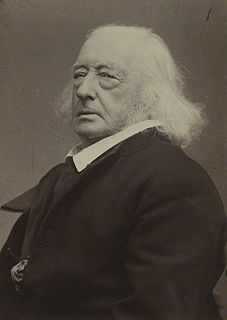A Quote by John Stuart Blackie
Creation is the production of order. What a simple, but, at the same time, comprehensive and pregnant principle is here! Plato could tell his disciples no ultimate truth of more pervading significance. Order is the law of all intelligible existence.
Related Quotes
(The terms douloi, banausoi and aristoi) are in a way more precise, but what is more vital and valuable, they are more comprehensive: they project a concept of psychic order that embraces entire fields that we have no other way of seeing all together as the working of a single principle. If we think of the human domain as the collaboration and the conflict of these three diverse character-types, we can understand the weave and the stress and polemics of their very different basal teleologies or ultimate governing purposes of life.
Einstein's space is no closer to reality than Van Gogh's sky . The glory of science is not in a truth more absolute than the truth of Bach or Tolstoy, but in the act of creation itself. The scientist's discoveries impose his own order on chaos, as the composer or painter imposes his; an order that always refers to limited aspects of reality, and is based on the observer's frame of reference, which differs from period to period as a Rembrant nude differs from a nude by Manet.
Entropy is one of the laws of thermodynamics. It's a physical law that says everything in nature is moving from order to disorder. In our lives this same principle is at work. As time moves on, things break down as we make mistakes. This is the 'letdown' every person experiences because of sin. For Christians this concept doesn't end there because we realize God's 'beautiful' mercy and grace restores the order in our lives.
It is not unreasonable to assume that the works of God, their existence and preceding non-existence, are the result of His wisdom, but we are unable to understand many of the ways of His Wisdom in His works. On this principle the whole Law of Moses is based; it begins with this principle: "And God saw all that He had made, and behold, it was very good" (Gen. i. 31); and it ends with this principle: "The Rock, perfect is His work" (Deut. xxxii. 4). Note it.
People take it for granted that the physical world is both ordered and intelligible. The underlying order in nature - the laws of physics - are simply accepted as given, as brute facts. Nobody asks where they came from; at least not in polite company. However, even the most atheistic scientist accepts as an act of faith that the universe is not absurd, that there is a rational basis to physical existence manifested as law-like order in nature that is at least partly comprehensible to us. So science can proceed only if the scientist adopts an essentially theological worldview.
Only a law-order which holds to the primacy of God's law can bring forth true freedom, freedom for justice, truth, and godly life. Freedom as an absolute is simply an assertion of man's "right" to be his own god; this means a radical denial of God's law-order. "Freedom" thus is another name for the claim by man to divinity and autonomy. It means that man becomes his own absolute.
The universe is no narrow thing and the order within it is not constrained by any latitude in its conception to repeat what exists in one part in any other part. Even in this world more things exist without our knowledge than with it and the order in creation which you see is that which you have put there, like a string in a maze, so that you shall not lose your way. For existence has its own order and that no man’s mind can compass, that mind itself being but a fact among others.





































